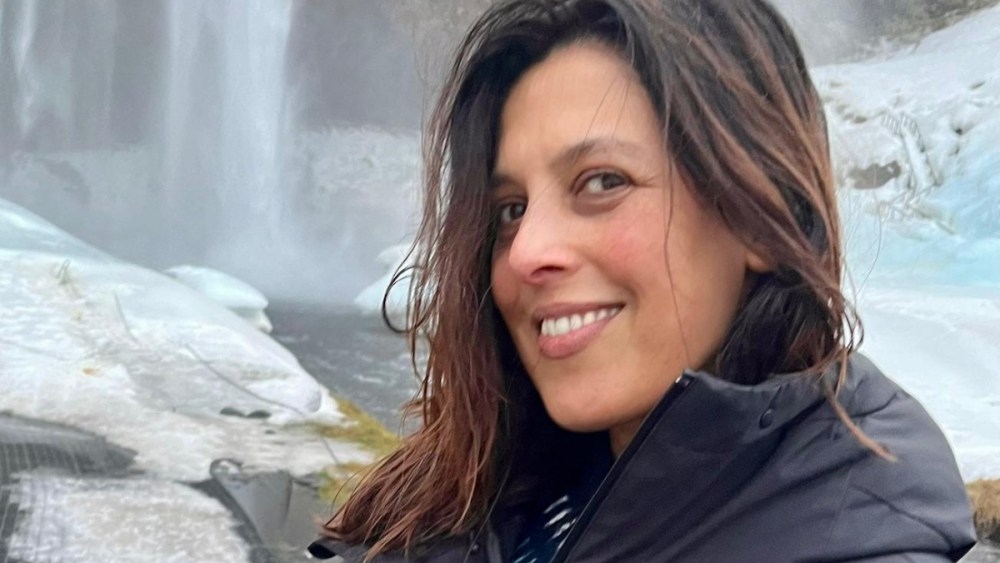For Helen Walsh, place comes first.
“Place is always my starting point. It’s an active force that shapes and informs our identities right throughout our lives,” said the novelist-turned-director, whose sophomore feature “On the Sea” world premieres in competition at the Edinburgh International Film Festival.
Following her 2015 debut, “The Violators” – which also bowed at Edinburgh and earned her a BAFTA Breakthrough Brit recognition – writer-director and award winning novelist Walsh returns to the festival with another intimate, place-rooted drama.
Produced by David A. Hughes and David Moores of Merseyside’s Red Union Films, “On the Sea” was ultimately made for under £1 million ($1.36 million).
Walsh admits that scaling back came with trade-offs, but her producers embraced the challenge. “We had a really strong script and Helen had found the perfect chemistry in Barry Ward and Lorne MacFadyen,” says producer David Moores. “We had a tight window for both the actors’ availability as a duo plus the seasonal calendar of the mussel beds to consider. We considered delaying the shoot in order to raise the extra finance, but ultimately decided to opt for shooting with our preferred cast on a smaller budget.
Helen favors working with a small, intimate crew and likes to shoot within a 5-10 mile radius, which suited our scaled-down model. There were inevitably compromises, but very few of these were creative ones. It was a huge challenge but our team all bought into the ‘guerrilla+’ aspect of the shoot and went above and beyond to help Helen achieve her vision.”
Barry Ward (“Bad Sisters”), Lorne MacFadyen (“Vigil”) and Liz White (“Life on Mars”) lead the cast. Ward plays Jack, a mussel bed worker who has been married to Maggie (White) for more than half his life. Jack assumes his teenage son will join the family business, working alongside his brother Dyfan and Dyfan’s three sons, until the arrival of deckhand Daniel (MacFadyen) forces him to confront long-suppressed truths.
“I wanted to make a film about a good man from a small fishing village, who has lived by the tenets of family, community and the church,” Walsh said. “He makes the momentous decision to come out mid-life – a time when he risks losing everything he holds dear.”
The road to “On the Sea” started with location rather than story. Walsh spent years searching, from Oban to the Isle of Man, before encountering the mussel men of the Menai Strait. “From the moment I saw the beds, I knew I had to write about them. It’s a vanishing tradition. These huge, stoic men go out every day, even when it no longer makes financial sense.” she described.
The director embedded herself in the community, sourcing extras locally and spending weeks on the beds. “When you first fetch up somewhere, you’re imposing your own mythologies. Spending time there strips that away,” she said.
Working with cinematographer Sam Goldie, Walsh built a visual language months before shooting. “Most of the first half is in close-up, to create Jack’s claustrophobia in this enclosed, oppressive landscape he both loves and resents,” she explained. “Only when Daniel arrives do we lean into the big wides – he literally smashes down Jack’s boundaries.”
The edit was equally transformative. “Initially, there were three stories – the marriage, the attraction, and the family of men bound by tradition. But Jack’s journey became the centrifugal force,” Walsh outlined. One of the film’s most affecting moments – a quiet gesture of empathy between Barry Ward’s Jack and newcomer Leisa Gwenllian who plays his son’s girlfriend – was born out of the edit. Watching early cuts, Walsh realized Jack’s story felt “unremitting” in its bleakness. “My stomach sank. It was hopeless for Jack, too desperate,” she recalled. She went back to shoot the understated but key scene, which she describes as “a simple act of human kindness” at Jack’s lowest point. “It hints at the optimism the younger generation might bring through. There wasn’t a dry eye in the room when we filmed it.”
Ward’s performance proved crucial. “Barry says so much with so very little, and our lens never tires of him,” Walsh said. To help convey Jack’s inner world, she gave him Robert Seethaler’s remarkable and quiet novel “A Whole Life.” For MacFadyen, whose disruptive presence is fundamental to the piece, she suggested Édouard Louis’ “Who Killed My Father” to explore Daniel’s complex backstory.
While “On the Sea” depicts prejudice, it resists caricature through its specificity of this community, in this place of sea and land, at this time. “It’s about respecting the community you’re portraying, involving them from the start, and allowing yourself to be challenged,” Walsh said. “I think female directors can open up spaces for more nuanced depictions of masculinity. The tide is turning.”
For Walsh, the story ultimately comes down to resilience. “I wanted to make a film about courage and hope,” she concludes. “I grew up in a small town just like Jack’s, and I understand why he made the choices he made, why he married a woman when his heart was with men.”
With sales handled by The Yellow Affair, “On the Sea” will premiere in competition for Edinburgh’s Sean Connery Prize.
